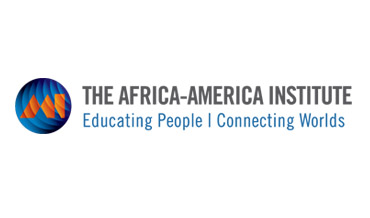Roger Wilkins letter of leave from 2005
Roger Wilkins letter of leave from 2005:
Dear Friends:
This will be my last letter to you as Chair of the Board of the Africa-America Institute. My colleagues have given me the extraordinary honor of permitting me to serve in this great organization in this capacity for seven years. It is the culmination of 44 years of engagement with Africa, which started when I arrive in New York right from law school in 1956. This has all been enormously rewarding and has left me with a number of lasting impressions, some those of which I would like to share with you this evening.
The most powerful memories are of the great joy I have felt at moments of dramatic African achievements. I will never forget watching on television as Nelson Mandela first emerged from his long years of imprisonment and then after a few years, the long lines of South Africans waiting patiently to cast their votes in a real democracy. The others are of the rich feelings of warmth, joy, and friendship that engulfed colleagues and friends as we welcomed our former board member, Olusegun Obasanjo, to the reception AAI held to celebrate his election as President of Nigeria in a dramatic renewal of that great country’s democracy.
One of the powerful lessons of those 46 years is that the work of aiding Africa is not for the faint-hearted or for people who are susceptible to dreamy illusions or summer soldiers who yearn for gratification NOW. The idea of an easy transition from colonialism to democracy eased by “gentle guidance” provided by withdrawing colonial powers is one of those illusions. It is an illusion because colonialism hasn’t yet ended if it is defined as the ruthless use of African people and African resources for the benefit of people outside Africa. Colonialism surely flourished during the Cold War and it continues today in more sophisticated forms as exploitation of resources and manipulation of pliable or deeply needy Africans. The manipulation of powerful Africans for the enrichment of people whose fundamental interests and commitments are elsewhere is not really very much different from the practices begun in the earliest part of the 16th century to introduce the Atlantic slave trade and similar efforts centuries later which were brilliantly described by Chinua Achebe in his great novel,Things Fall Apart.
Some observers looking at Africa at this turning of a century have been eager to write its obituary. AIDs and the bloodlust of warlords in various trouble spots across the continent have fueled their pessimism and it would certainly be a mistake for Africa’s friends to try to minimize these or a number of other troubling questions. But there is considerable strength in Africa as out knowledge of the lives and contributions of thousands of AAI graduates informs us in our daily work.
What Africa needs most desperately now is much more of what we are already beginning to see. Africa needs both trained Africans and stable and effective African institutions that will work ceaselessly to promote the interest of Africa and African peoples. The point is to stay engaged with Africans in efforts that they and we agree are the best long-range responses to the needs of the continent. We outsiders need to understand that in helping Africans to do that, we will be helping to lay the foundation stones for sustaining institutions and practices that will be taken for granted at the next turning of the century. We should not do this work expecting anything less, especially gratifying visible payoffs in our lifetimes.
But we as outsiders need to be honest and clear-eyed about what we are doing, so do our African partners. Africans have to begin to insist on accountability, transparency, and integrity in public institutions. Africans have to insist that their governments and internal factions find ways to settle disagreements without resorting to arms. Africans have to find ways to open the structures of opportunity to all African children – rich poor, urban rural, female male: Africa needs them all.
Africa’s helpers must be prepared to listen hard to Africans as they define their problems and proposed solutions and be willing to concede that all good answers do not come from the industrialized nations. On the other hand, Africans have to listen hard to the observations of their real friends and not slough them off as simply extensions of the arrogant intrusions Africans have experienced for so long. And Africans surely have to make the kind of sustained commitments to training their people and building their institutions that will give helpers from the outside confidence that whatever the case may be now, Africans possess the determination and the will to make the long-term prospects much brighter.
Things in Africa today aren’t where we dreamers of the fifties thought they might be, but things in Africa today are far better – even with all the problems – than they were in the fifties. There is freedom in Africa and there are far more trained Africans dealing with African problems than there were then. Even will all of Africa’s urgent problems pulsing at us through news media, all of us who have engaged in this work for decades know that many of the advances we have seen in governance, education, medicine, democratization, and the creation of civic society give promise of an Africa that someday will emerge from the nightmare of centuries of domination and ruthless exploitation with a capacity to govern her nations, improve her institutions, and most important of all, nurture her people.
In my years I this work, I have seen the evidence to give me faith in such an African future. That faith and the work I have been privileged to do are the greatest rewards anyone could wish to have, I thank you, colleagues and friends alike, who have made my life rich in this wonderful way.
Roger Wilkins
